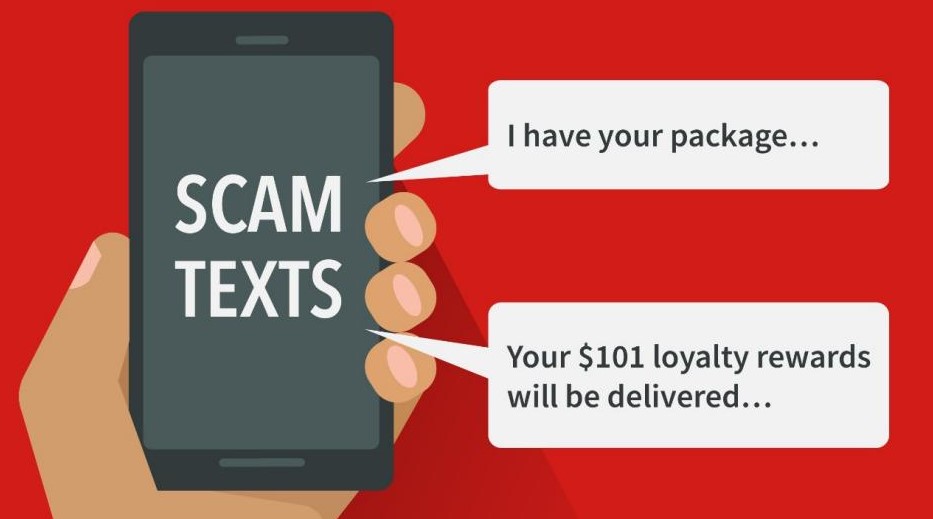Scam text messages are messages that are sent to individuals’ mobile phones in an attempt to defraud them. These messages may contain links to malicious websites, ask for personal information such as bank account numbers or social security numbers, or request that the recipient transfer money to a specific account.

It’s important to be cautious when receiving unsolicited messages, and never click on links or provide personal information without verifying the identity of the sender.
Examples of scam text messages:
Here are a few examples of scam text messages:
- “Congratulations! You have been selected to receive a free gift card. Click the link to claim your prize.”
- “Your account has been compromised. Please click the link to reset your password.”
- “You have been selected to receive a government grant. Reply with your social security number and bank account information to claim your funds.”
- “Your utility bill is overdue. Click the link to pay your bill and avoid disconnection of service.”
- “You have won a foreign lottery! Reply with your bank account information and pay a small fee to claim your prize.”
It is important to keep in mind that these text message scams may appear to come from a legitimate source, like a bank, a government agency, or a well-known company. So it’s important to be cautious, never provide personal information, and double-check with the supposed sender before providing any information.
How to identify scam text messages:
Here are a few tips to help you identify scam text messages:
- Be wary of unsolicited messages: Scammers often send text messages to large numbers of people in the hope that someone will fall for their scam. Be extra cautious if you receive a message that you were not expecting.
- Look out for urgent language: Scammers often use urgent language to try to pressure you into taking action immediately. For example, they may claim that your account has been compromised, or that your utility service will be disconnected if you don’t pay your bill right away.
- Check the sender’s phone number: Scammers often use phone numbers that are similar to those of legitimate companies or government agencies, but not quite the same. If you receive a message from an unknown phone number, it’s best to be cautious and not respond to it.
- Don’t click on links or download attachments from unknown senders: Scammers often use text messages to trick people into visiting malicious websites or downloading malware.
- Be wary of requests for personal information: Scammers may try to trick you into providing sensitive information, like your bank account number or Social Security number, by claiming that it’s needed to claim a prize or access a service.
- Double check with the supposed sender: If you are uncertain if the message is a scam or not, it is best to contact the supposed sender, using the information you know is accurate, to confirm the validity of the message before proceeding with any action.
By being cautious and following these tips, you can help protect yourself from falling victim to a scam text message.
What to do when you receive spam text messages:
Here are a few things you can do if you receive spam text messages:
- Don’t respond: If you receive a spam text message, do not respond to it in any way. Replying to the message, even unsubscribing, can confirm to the sender that your number is active and you may receive more spam in the future.
- Report the message: Most mobile phone carriers have a way for you to report spam text messages. This will help them keep track of the spam messages being sent through their network, and also help them take action to block these messages if possible.
- Block the sender: If you keep receiving spam messages from a specific phone number, you can block the number from sending you any further messages. Most smartphones and mobile operating systems have this option to block the phone number.
- Use a spam-blocking app: Some apps are available that can automatically block spam text messages, you can use this to protect yourself from further spam messages.
- Be careful with your phone number: Be careful of giving out your phone number on public forums or websites, especially on the untrusted or untrusted or unknown website or application that is not verified and reliable.
It’s also important to keep in mind that even if you take steps to block and report spam text messages, it may still be possible for scammers to send you messages using a different phone number. So it’s important to remain vigilant and always be on the lookout for messages that seem suspicious.
Read more articles:
